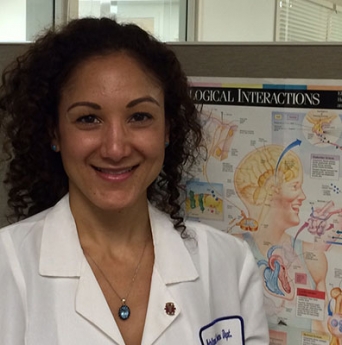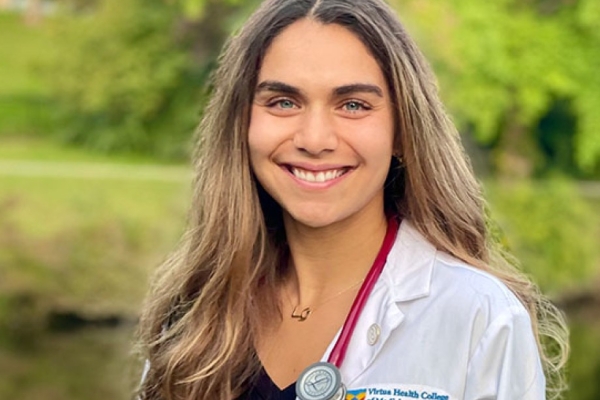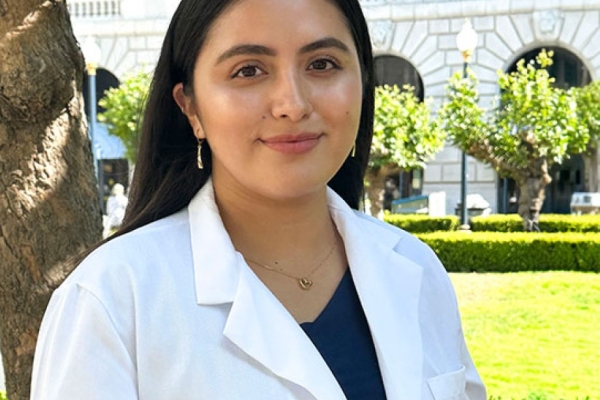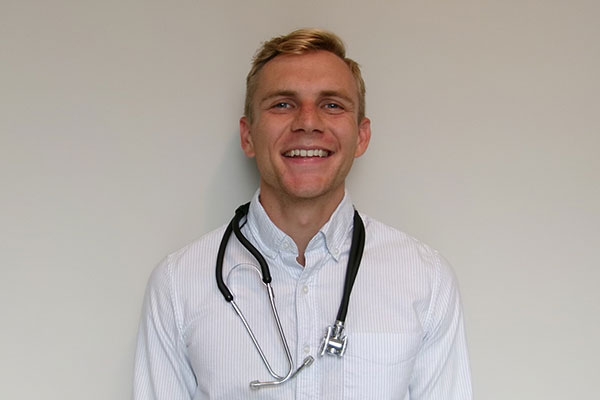
Nutrition plays a major role in our physical, mental and emotional health—a truism that registered dietitian Melissa Javaheri fully subscribes to. And her patients are the better for it: While making her rounds at New York City hospitals, Javaheri would identify and work with those needing healthy nutritional plans.
And because hospitals are a team-based setting, she often found herself working side-by-side with physicians, nurses, physician assistants and social workers. Rounding out her schedule, Javaheri also provided outpatient one-on-one nutrition counseling to patients for management of diabetes, heart disease, cancer, obesity and gastrointestinal diseases.
While the position was rewarding, Javaheri felt limited in what she could do for her patients, setting her on a track in which she would move to the San Francisco Bay Area (she has family here) and be accepted into Stanford University's Primary Care Associate Program—her top-choice school—to become a physician assistant (PA).
The advisers and instructors can provide valuable advice to overcome challenges in being an adult learner.
What drew you to UC Berkeley Extension?
When I researched the PA school application process, I discovered that it would take a significant amount of time to complete my prerequisite courses, especially if I was working full time. The Post-Baccalaureate Health Professions Program fits all of my needs as a career-changer: Not only did it provide the courses I needed to apply to PA school, but it also offered night and weekend classes that allowed me to continue working as a dietitian during the day.
Why register for the program if you only needed to take a couple of courses?
As an adult learner several years out of school, I knew the transition to being a student again would be challenging. The application process for PA school is highly competitive and very thorough, and I wanted to ensure that I would be a competitive applicant. The program offered the support I needed to set a realistic timeline for completing classes, managing the coursework and navigating the application process. With my program adviser, I got assistance in writing my personal statement, tips in interviewing through a mock interview and general guidance in managing my classes and my applications. The Health Careers seminars provided further information in a classroom setting on the application process and helped to answer questions and ease my anxieties prior to applying to PA programs.
A fellow classmate helped me secure a shadowing experience with a PA, which eventually led to a letter of recommendation for my applications.
Congrats on being accepted to Stanford's PCA Program! Do you feel prepared?
The first quarter of school will be heavily focused on the basic sciences of anatomy, physiology, microbiology and genetics—all classes that I have recently taken through the program. I feel confident that I have a solid knowledge base going into PA school.
There was a high level of expectation set by our professors to perform well and work autonomously as adult learners.
What are your career aspirations after Stanford?
My initial goal will be to pass the certifying exam, PANCE, to become a certified PA (PA-C). After that, I hope to land a job working in the Bay Area in either primary care or a specialty of my interest. I know the majority of learning will be on the job, so I hope to find one that will allow me to grow and develop the medical knowledge and skills I have learned through the post-bacc program and PA school. I would also like to continue volunteering in the community to help increase access to healthcare in areas that lack affordable care, and to continue to utilize my nutrition background on the job or in the community setting through nutrition education.


